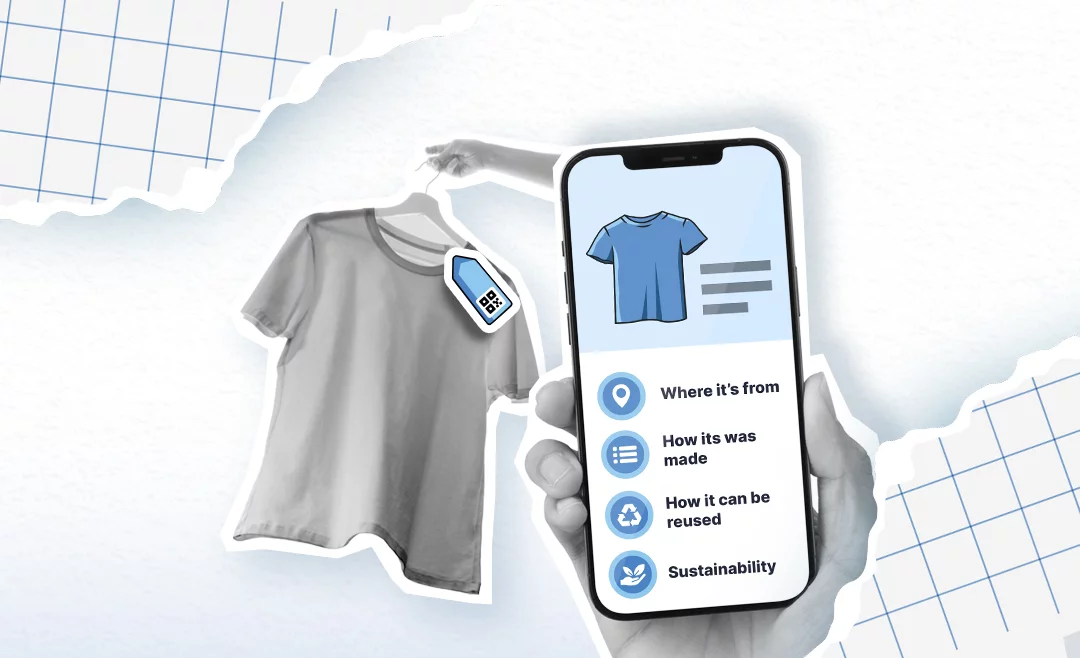The Digital Product Passport

The conversation between brands and consumers is changing. Today’s customers are looking past the label and asking deeper questions: Where did this come from? What is its environmental footprint? How can I be sure it was made ethically? In response to this growing demand for transparency, a transformative new regulation is emerging from the European Union: the Digital Product Passport (DPP).
While it may seem like another regulatory hurdle, the DPP is a strategic opportunity for forward-thinking brands to build trust, unlock new value, and create a more resilient business.
What is the Digital Product Passport?
The Digital Product Passport (DPP) is a digital record that details a product's entire lifecycle, from the origin of its materials to its potential for recycling and repair. This information will be linked to each physical item via a data carrier, like a QR code or NFC tag. The initiative is a core component of the EU's Ecodesign for Sustainable Products Regulation (ESPR), which aims to make sustainable products the standard across the 27-nation bloc.
This regulation will affect not only EU-based companies but anyone selling into the European market. The rollout will be phased, with products that have a high environmental impact being prioritized first. These include:
- Batteries (expected by 2027)
- Textiles and footwear
- Furniture
- Consumer electronics
By 2030, the goal is for the DPP to be implemented for all products sold in the EU.
Beyond the Mandate: Turning Transparency into Trust
In an age where consumers are wary of "greenwashing," the DPP provides a powerful tool for building authentic brand loyalty. By offering clear, verifiable data on a product's environmental credentials and supply chain, you can substantiate your sustainability claims and build a deeper connection with your customers. The DPP provides the very information that a growing number of consumers are demanding before they make a purchase.
Unlocking New Value from the Circular Economy
The DPP is a key enabler of the circular economy. By embedding crucial information about a product's composition and repairability directly into the item itself, you can create new post-sale opportunities. Imagine a customer scanning a product to instantly access:
- Repair Manuals and Video Guides: Empowering them to extend the product's life.
- A Marketplace for Spare Parts: Creating a new, direct-to-consumer revenue stream.
- Detailed Recycling Instructions: Ensuring your products don't end up in a landfill and contribute to a circular flow of materials.
This transforms the customer relationship from a single transaction into an ongoing, valuable interaction.
A Clearer View of Your Supply Chain
The benefits of the DPP are not just customer-facing. The process of gathering and managing the required data will provide your business with unprecedented visibility into your own supply chain. This comprehensive digital record allows you to:
- Identify and Mitigate Risks: Pinpoint dependencies on specific suppliers or materials.
- Ensure Regulatory Compliance: Easily access and share necessary documentation.
- Improve Efficiency: Uncover and address bottlenecks in your production and distribution network.
The journey to DPP readiness may seem complex, but the strategic advantages are clear. It's a fundamental shift towards a more transparent, circular, and data-driven marketplace. Brands that begin preparing now will not only ensure compliance but will also be perfectly positioned to lead in the next era of commerce.
Sources
- The EU’s new Digital Product Passport (DPP): everything you need to know
- Digital Product Passport: What You Need to Know About the DPP
- EU's Digital Product Passport: Advancing transparency and sustainability
- Understanding the EU’s Digital Product Passport



